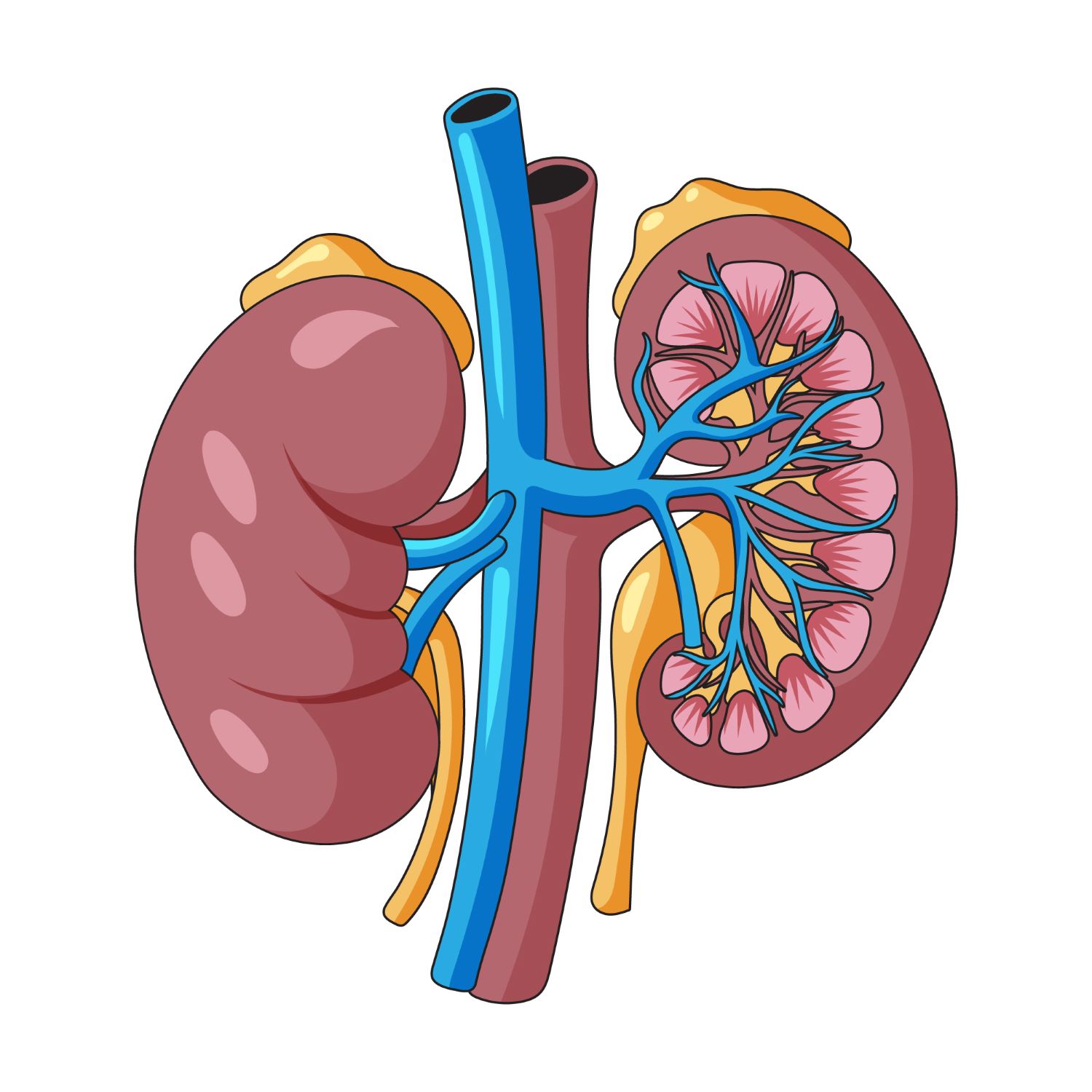Kidney Diseases

Kidney diseases encompass a range of conditions that impair the kidneys’ ability to filter waste and excess fluids from the blood. These include chronic kidney disease (CKD), kidney stones, glomerulonephritis, and acute kidney injury. Symptoms can vary but often include fatigue, swelling, changes in urine output, and high blood pressure. If left untreated, kidney diseases can progress to kidney failure, requiring dialysis or a kidney transplant.
In Ayurveda, kidney diseases are primarily linked to imbalances in the Vata and Kapha doshas, with the kidneys being part of the Mutra Vaha Srotas (urinary system). Vata dosha governs movement and circulation, while Kapha dosha governs structure and stability. An imbalance in Vata can lead to dryness and deterioration of kidney tissue, while an excess of Kapha can cause blockages and the accumulation of toxins (Ama) in the kidneys. Ayurveda focuses on restoring the balance of these doshas, detoxifying the body, and supporting kidney function.
Ayurvedic Treatments for Kidney Diseases:
Herbal Remedies:
- Punarnava (Boerhavia diffusa): Known for its diuretic and rejuvenating properties, Punarnava helps reduce swelling, improve kidney function, and support the elimination of toxins.
- Gokshura (Tribulus terrestris): Acts as a kidney tonic, supporting renal health, enhancing urine flow, and balancing Vata and Kapha doshas.
- Varuna (Crataeva nurvala): Helps in breaking down kidney stones, improving urinary flow, and reducing inflammation in the urinary tract.
- Shatavari (Asparagus racemosus): Known for its nourishing properties, Shatavari supports kidney function and helps in balancing Vata dosha.
Panchakarma Therapies:
- Basti (Medicated Enema): A key therapy for balancing Vata dosha, Basti helps detoxify the colon, which indirectly supports kidney health by reducing the overall toxic load on the body.
- Virechana (Purgation Therapy): Helps to eliminate excess Pitta and Ama from the body, supporting liver and kidney detoxification.
- Abhyanga (Oil Massage): Regular massage with warm, medicated oils helps calm Vata, improve circulation, and support overall renal function.
Dietary and Lifestyle Modifications:
- Diet: A kidney-supportive diet that balances Vata and Kapha doshas is recommended. This includes fresh, easily digestible foods like whole grains, vegetables, and fruits while avoiding heavy, oily, and excessively salty foods. Herbs and spices like turmeric, ginger, and coriander can aid digestion and support kidney health.
- Hydration: Adequate hydration is crucial for kidney function, helping to flush out toxins and prevent the formation of kidney stones. However, fluid intake should be tailored to the individual’s condition, especially in cases of advanced kidney disease.
- Limit Salt and Protein: Reducing salt and protein intake can help manage fluid balance and reduce the strain on the kidneys.
Yoga and Exercise:
- Yoga Asanas: Gentle yoga poses such as Bhujangasana (Cobra Pose), Setu Bandhasana (Bridge Pose), and Paschimottanasana (Seated Forward Bend) can support kidney health by improving circulation and reducing stress.
- Pranayama: Breathing exercises like Anulom Vilom (Alternate Nostril Breathing) and Bhramari (Bee Breath) help in reducing stress and supporting overall health, which is beneficial for kidney function.
Conclusion: Ayurvedic treatment for kidney diseases involves a holistic approach to balancing Vata and Kapha doshas, detoxifying the body, and supporting kidney function through herbal remedies, Panchakarma therapies, dietary modifications, and lifestyle changes. By integrating these treatments, Ayurveda aims to manage symptoms, slow the progression of kidney disease, and improve overall kidney health. It is important to consult a qualified Ayurvedic practitioner for a personalized treatment plan tailored to individual needs and the specific type of kidney disease.
Kidney Diseases:
Acute Kidney Disease
A condition in which the kidneys are unable to filter waste from the blood.
Acute renal failure develops rapidly over a few hours or days.
Chronic Kidney Disease
Chronic kidney disease (CKD) means your kidneys are damaged and can’t filter blood the way they should.
Polycystic Kidney Disease
An inherited disorder in which clusters of cysts develop in the kidneys.
The cysts in polycystic kidney disease are non-cancerous sacs containing water-like fluid.
Kidney Stone
A small, hard deposit that forms in the kidneys and is often painful when passed.
Nephrotic Syndrome
A kidney disorder that causes the body to excrete too much protein in the urine.
Nephrotic syndrome is often caused by damage to small blood vessels in the kidneys that filter waste and excess water from the blood.
How It Works
Treat your body with the care of nature
Take the first step towards holistic well-being. Schedule a consultation with our experienced Ayurvedic specialists who will create a customized treatment plan tailored to your unique health needs. At BioResurge Wellness, we are committed to helping you achieve balance and vitality.
011-45020469

